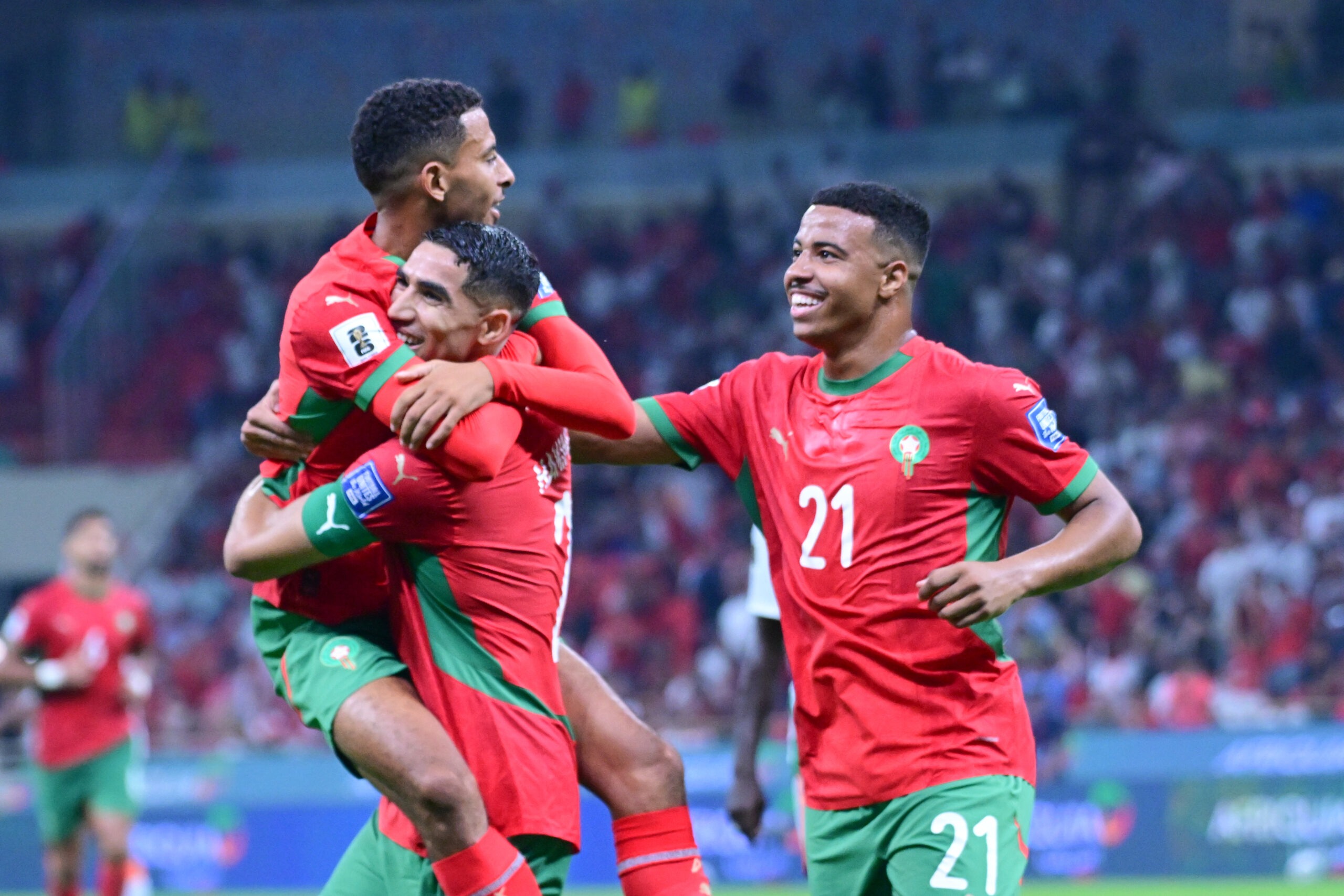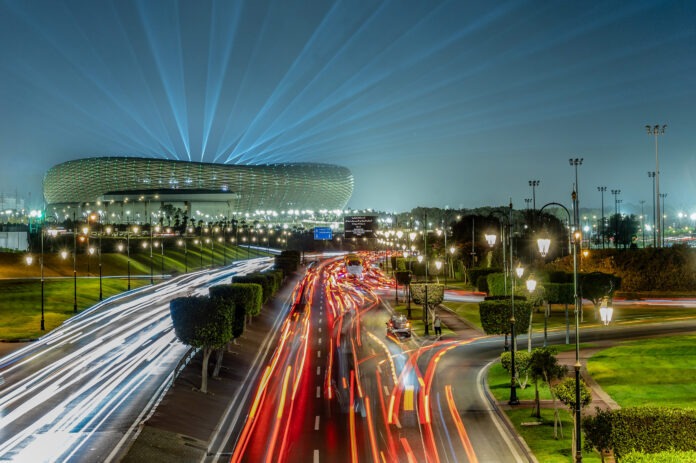World Cup qualification, stadium’s opening and an emphatic victory. Three elements that made Moroccan fans’ first game night in the newly inaugurated Prince Moulay Abdellah stadium, a day to remember.
The Atlas Lions delivered a commanding 5-0 victory over Niger, becoming the first African nation to secure a spot for the 2026 FIFA World Cup.
The game was more than a celebration for Moroccans. In fact, it was a symbol of the country’s football renaissance, marked by sporting excellence and a culmination of architectural prowess.
New stadium, 100% made in Morocco
The game marked the inaugural fixture at the completely redeveloped Prince Moulay Abdellah Stadium, in Rabat, capital of Morocco.
The original venue, built in 1980, was demolished late in 2023, with construction beginning immediately from the ground up.
This ambitious rebuild, which was completed in 18 months, was crowned by a Royal opening ceremony, led by Crown Prince Moulay El Hassan, the day before the inaugural game.
The state-of-the-art facility anchors Morocco’s football vision, and represents a significant investment in the country’s sporting infrastructure.
It features four FIFA-standard locker rooms and Africa’s first hybrid pitch with LED grass-growth technology. The latter is an innovation that Morocco plans to implement across other venues for the 2030 World Cup, which the country will co-host with Spain and Portugal.
The venue can accommodate 68,700 spectators, and it features 110 VIP & VVIP boxes, five premium lounges with over 5,000 exclusive seats, and extensive disabled facilities.
Also inside the venue, a purpose-built media center, which can host up to 1800 journalists.
This architectural gem is destined to stage the 2025 Africa Cup of Nations final, and will feature prominently in the 2030 World Cup.
Sporting performance backed by infrastructure investment
Morocco’s recent investments in football infrastructure are beginning to yield results.
Friday’s dominating victory was in fact an indicator, as Achraf Hakimi’s teammates secured the first African spot for the 2026 FIFA World Cup, with three fixtures remaining.
The Atlas Lions maintained an impressive perfect record in their qualifying campaign: 7 consecutive wins so far.
A sporting achievement and a demonstration of their growing stature in international football, following their captivating World Cup campaign in 2022 in Qatar, which have set new standards for African football on the global stage.
Fan support and commercial demand
The excitement surrounding Morocco’s qualification campaign reached fever pitch, with all tickets selling out in just 24 hours.
The Atlas Lions played in front of a packed stadium, where the electric atmosphere perfectly reflected the historic significance of the night.
Supporters lined up at various official FRMF (Federation Royale Marocaine de Football) retail points throughout the venue, including actual stores and kiosks.
According to organizers on-site, around 80% of the available merchandise was sold during the event. This surge in fan engagement extended far beyond match day.
For the first time ever, the FRMF launched official boutiques dedicated to the national team, part of a broader retail expansion rolled out in record time: less than two weeks.
The initiative was bolstered by a new e-commerce platform launched last November. The project was developed in collaboration with a leading American agency, enabling fans both locally and abroad to access national team merchandise, alongside items made by local creators.
The sight of attendance proudly wearing the team’s colors, underscored not only the commercial success of the campaign, but also football’s power to unite and inspire national pride.

Established stars and home-grown excellence
Morocco’s success story extends beyond immediate results to encompass long-term player development and youth investment.
The qualification campaign has showcased the depth of Moroccan talent, with several home-grown players making significant contributions in the seven-won games.
Established star players, such as Achraf Hakimi, Yassine Bono and several home-grown talents, featured have made significant contributions in this journey. Notably, Hamza Igamane, the former AS FAR forward, and Youssef Belammari of Raja Casablanca, contributed in 4 out of the 5 goals of the game.
This blend of experienced internationals and home-grown talents demonstrates the country’s appeal to players of the Moroccan diaspora, and its commitment to developing elite players through its domestic academies and leagues. A strategy that ensures a pipeline of talent for future tournaments and continued success on the international stage.
Conclusion
Friday night at Prince Moulay Abdellah Stadium showcased Morocco’s football vision in action.
Passionate fans, world-class infrastructure, and on-field excellence demonstrates how an existing sporting culture combined with strategic investments are yielding results.
With their 2026 World Cup spot secured and modern venues ready for major tournaments, Morocco has positioned itself as a continental football powerhouse, setting the foundation for continued success for the upcoming challenges through 2030.

